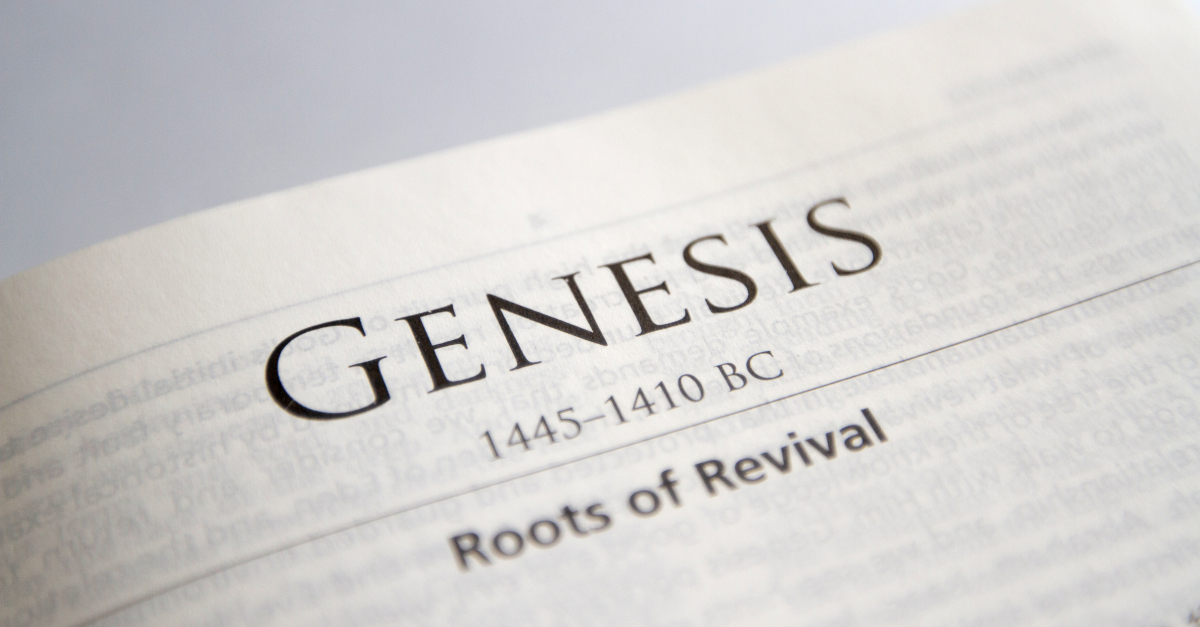The Book of Genesis, the first book of the Hebrew Bible, is a treasure trove of stories, myths, and legends that have captivated readers for centuries. From the creation of the world to the early history of the Israelites, Genesis is a book shrouded in mystery and controversy.
One of the most pressing questions that has puzzled scholars and theologians for centuries is: Who wrote Genesis?
Contents
- The Traditional View
- The Scholarly Consensus
- The Composition of Genesis
- Secrets of Genesis
- Yahwist (j source) and dates
- Elohist (E Source)
- Priestly (P Source)
- Some Questions
- Who wrote Genesis?
- What is the significance of a city gate in the Bible?
- What does it mean that in the beginning God created the heavens and the earth (Genesis 1:1)?
- Conclusion
The Traditional View
For centuries, the traditional view has been that Moses wrote the book of Genesis. This view is based on the biblical account in Exodus 17:14, 24:4, 34:27, and Deuteronomy 31:9, which mentions Moses as the author of the Pentateuch, the first five books of the Hebrew Bible. Also, the title “Moses” is often associated with the Pentateuch in Jewish and Christian tradition.
However, this traditional view has been challenged by modern scholarship, which has raised questions about the authorship of Genesis. Scholars have pointed out that the language, style, and content of Genesis suggest that it was written by multiple authors over a period of time.
The Scholarly Consensus
The scholarly consensus is that Moses did not write any of the books of the Pentateuch, including Genesis. Instead, it is believed that the Pentateuch was written by multiple authors, often referred to as the “J” and “E” sources, who lived during different periods of Israelite history.
The “J” source is believed to have written the majority of the book of Genesis, including the stories of Adam and Eve, Noah, and the patriarchs Abraham, Isaac, and Jacob. This source is characterized by its use of the name “Yahweh” for God and its emphasis on the covenant between God and the Israelites.
The “E” source, on the other hand, is believed to have written the stories of the early Israelites, including the exodus from Egypt and the conquest of Canaan. This source is characterized by its use of the name “Elohim” for God and its emphasis on the importance of the temple in Jerusalem.
The Composition of Genesis
The composition of Genesis is a complex and debated topic among scholars. Some scholars believe that Genesis was written in its entirety by a single author, while others believe that it was written by multiple authors over a period of time.
One theory is that Genesis was written in three stages: the “J” source, the “E” source, and a later editor who combined the two sources into a single book. This editor is often referred to as the “redactor.”
Another theory is that Genesis was written in two stages: the “J” source and the “E” source, which were written separately and then combined into a single book.
Secrets of Genesis
So, who wrote Genesis? The answer is a complex one. While the traditional view holds that Moses wrote Genesis, modern scholarship suggests that the book was written by multiple authors over a period of time.
However, the question of who wrote Genesis is more than just a matter of scholarly debate. It is also a question of significance for our understanding of the book itself. By understanding the composition of Genesis, we can gain a deeper appreciation for the stories, myths, and legends that it contains.
Yahwist (j source) and dates
The Yahwist (J) source is one of the four main sources of the Pentateuch, and its dates are a topic of ongoing debate among scholars. Here are some key dates mentioned:
- 9th century BCE: According to Wellhausen, the oldest source, known as J, was composed by the Yahwist and dates back to this period.
- 950 BCE: Gerhard von Rad placed J at the court of Solomon, around this time, and argued that its purpose was to provide a theological justification for the unified state created by Solomon’s father, David.
- 7th century BCE: H. H. Schmid’s 1976 study argued that J knew the prophetic books of the 8th and 7th centuries BCE, while the prophets did not know the traditions of the Torah, meaning J could not be earlier than this period.
- 1300-1500 BCE: This is the estimated date of the original Jahwist text, according to some scholars, which would put its origin during the Monarchical period.
Elohist (E Source)
The Elohist (E) is one of the four source documents underlying the Torah, according to the documentary hypothesis. It is named after its frequent use of the word “Elohim” to refer to God.
The Elohist source is characterized by an abstract view of God, using Horeb instead of Sinai for the mountain where Moses received the laws of Israel, and habitually locating ancestral stories in the north, especially Ephraim.
Priestly (P Source)
The Priestly source (P) is another of the four source documents underlying the Torah, according to the documentary hypothesis. It is characterized by a focus on ritual, sacrifice, and law, and is thought to have been written by priests or scribes who were concerned with the maintenance of ritual purity and the regulation of worship.
Some Questions
Who wrote Genesis?
The authorship of the book of Genesis is attributed to Moses.
What is the significance of a city gate in the Bible?
In the Bible, city gates were important locations where important decisions were made, and where people would gather to hear announcements and proclamations.
What does it mean that in the beginning God created the heavens and the earth (Genesis 1:1)?
This verse sets the tone for the rest of the book of Genesis, establishing God as the creator of the universe.
Conclusion
The book of Genesis is a complex and multifaceted text that has captivated readers for centuries. While the question of who wrote Genesis may never be fully resolved, it is clear that the book was written by multiple authors over a period of time.
In conclusion, the question of who wrote Genesis is a complex and debated topic among scholars. While the traditional view holds that Moses wrote Genesis, modern scholarship suggests that the book was written by multiple authors over a period of time.
By understanding the composition of Genesis, we can gain a deeper appreciation for the book and its significance for our own lives.
- The Real Reason Invoices Go Unpaid — And How Collection Automation Can Fix It
- Best Places to Buy Diamonds and Engagement Rings Online
- Building Focus and Strategy Through Interactive Digital Experiences
- How Students’ Reading Interests Influence Their Motivation and Performance in Writing Assignments
- The Damages Resulting from the Use of Suboxone

Chandler is an avid automobile enthusiast who is passionate about all things on wheels. From the latest car models to classic vintage rides, I love exploring the automotive world’s intricate details and engineering marvels. With years of experience in test-driving, reviewing, and analyzing cars, I provide readers with comprehensive insights and honest opinions.



























